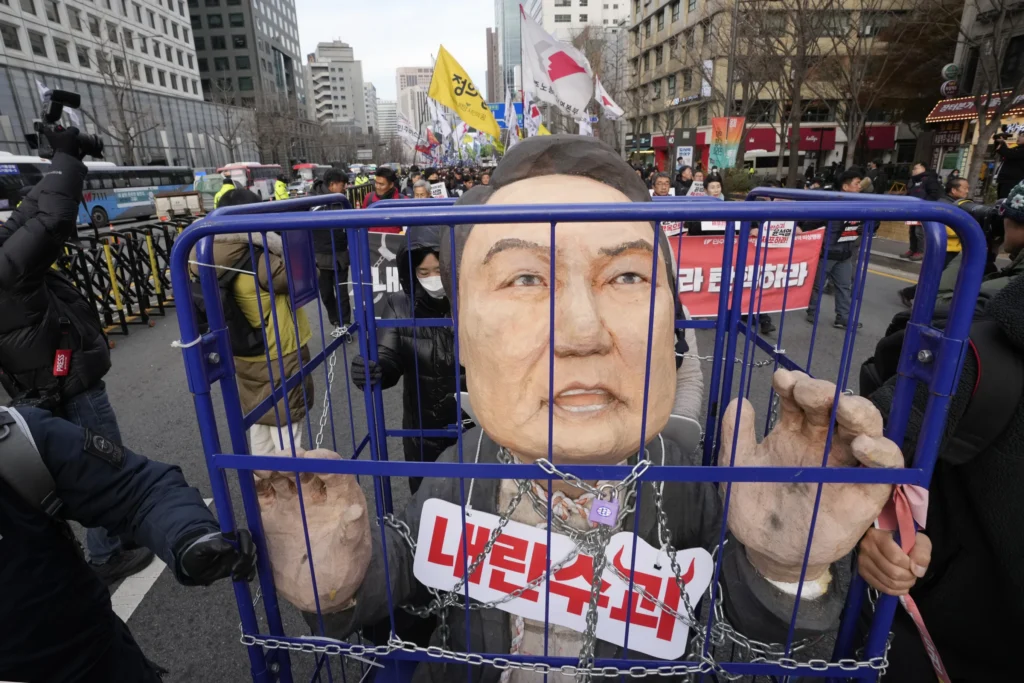South Korea’s Constitutional Court unanimously removed President Yoon Suk Yeol from office on Friday, marking a historic end to a controversial presidency that spiraled into crisis after his declaration of martial law just four months ago.

The court’s eight-member panel found Yoon’s actions to be unconstitutional, citing grave consequences for the country’s political, social, and economic stability. The martial law decree, though short-lived, triggered widespread unrest and prompted immediate backlash from lawmakers, civil society, and international observers.
“By declaring martial law in breach of the constitution and other laws, the defendant revived a dark chapter in our history, shocking the public and causing confusion across society,” said acting Chief Justice Moon Hyung-bae during the nationally televised ruling.
Yoon’s removal sparked emotional scenes across Seoul. Outside the Constitutional Court, anti-Yoon demonstrators erupted in cheers, tears, and celebration, while supporters near the presidential residence responded with sorrow and anger. Despite heightened tensions, authorities reported no major incidents of violence.
Political analysts say the unanimous ruling helps restore constitutional order and removes a key source of political instability. However, deep societal divisions remain.
“This is the greatest constitutional challenge South Korea has faced in a generation,” said Leif-Eric Easley, professor at Ewha University. “But the institutions have held.”
South Korea must now hold a new presidential election within 60 days. Lee Jae-myung, leader of the liberal Democratic Party, currently leads in early polling, though he faces multiple criminal charges.
“If Lee wins, it could lead to a significant shift in foreign policy, especially in relation to the U.S.,” said Duyeon Kim, senior analyst at the Center for a New American Security.
Yoon’s conservative People Power Party accepted the court’s ruling, though one of his lawyers denounced the verdict as “purely political.” Prime Minister Han Duck-soo, now acting president, pledged a smooth transition and public order.
The crisis began on December 3, when Yoon imposed martial law in response to escalating political resistance. Troops were deployed to the National Assembly, opposition offices, and election facilities. Protesters clashed with special forces as images evoked painful memories of South Korea’s military dictatorship era.
The martial law lasted just six hours before being struck down by lawmakers, including members of Yoon’s own party. The National Assembly impeached Yoon 11 days later.
The Constitutional Court ruled that Yoon’s declaration lacked legal basis and failed to meet procedural requirements, such as formal Cabinet deliberation. It also concluded that his political conflict with the opposition did not justify such extreme measures.
Yoon now faces criminal prosecution, including charges of rebellion—an offense punishable by life imprisonment or the death penalty. Though a district court canceled his arrest warrant in March, allowing him to await trial without detention, he has lost the presidential immunity that previously shielded him from broader legal action.
Observers say Yoon could soon face additional charges, including abuse of power and obstruction of legislative processes.
In a statement issued through his legal team, Yoon expressed “deep regret” for not meeting public expectations but stopped short of accepting the court’s decision.
“It has been the greatest honor of my life to serve our nation,” he said, adding that he would “pray for the country and its people.”



